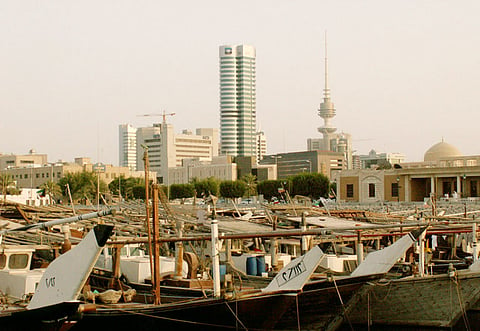Regressive move in Kuwait
Conservative forces seize every opportunity to regress what Kuwaiti women have achieved

Kuwaiti women celebrated International Women's Day while facing a new challenge, which adds to their struggle for their rights for more than half a century. Conservative forces seize every opportunity to regress what Kuwaiti women have achieved and by doing that, they forestall social progress.
The Kuwaiti Parliament's ‘Committee to Combat Negative Phenomena', which is controlled by conservatives, suggested banning Kuwaiti women from taking part in the Olympics and other sporting events. They also warned the Minister of Social Affairs, Mohammad Al Afasi, that he would be questioned before the parliament if he allowed women to do so.
The committee's justification was a fatwa issued by the Kuwaiti Ministry of Awqaf, which bans girls from participating in such games.
Islamic scholar Dr Ujail Al Nashmi supported the two Salafist members of parliament who submitted the proposal, namely Dr Waleed Al Tabtaba'ee and Mohammad Hayef Al Mutairi.
Al Nashmi, professor of Islamic Legislation at University of Kuwait, said the appearance of women, while playing football, amounts to legal and moral violations, any one of which would be enough to ban it. He described women's participation in sports as a sin.
The committee had earlier raised the issue of the first four women members of parliament, some of whom did not wear the hijab while taking the parliamentary oath. This objection by the committee was rejected by a ruling of the constitutional court.
The committee also submitted proposals to ban women from working at night and to ban closed cabins in coffee shops. It seems that the committee has a long list of proposed bans confined to Kuwaiti women and which exempt men.
MP Dr Aseel Al Awadi correctly noted that Kuwait is a constitutional State governed by laws, not by fatwas, which merely express the opinions of those who issue them. Her colleague, Dr Roula Dushti, wondered if the Minister of Social Affairs had succumbed to the committee's demands and prevented Kuwaiti girls from participating in sporting events.
Prominent media figure Iqbal Al Ahmad recalled the Kuwait of 1970s, when the country was a source of happiness, and asked for reconsidering the steps taken since.
The quality of government education for girls was inferior to that offered to boys for about 25 years, as the first boys' school, Al Mubarakiyah, was opened in 1912 with an initiative by a group of merchants.
Meanwhile, girls, mainly from rich families, continued to go to religious teachers to learn the Quran and the Arabic language.
In 1936, the Knowledge Council of Kuwait decided to set up a girls' school, named Al Sharqiah.
The council members submitted a request to the then ruler of Kuwait, Shaikh Ahmad Al Jaber Al Sabah, to increase customs tax by 0.5 per cent to 4.5 per cent. The increase was meant to fund municipal works and development of education. They also contacted Ameen Al Hussaini, the Mufti of occupied Jerusalem, asking him to send male and female teachers to educate Kuwaiti people.
However, formal education for women was confined to the daughters of merchants, because this class had realised the importance of education and also because education was expensive.
Schooling only became available to all after Kuwait started exporting oil, following the end of the Second World War in 1946, when the State shouldered the responsibility of spreading education.
Unofficial schooling continued until 1950, according to the first Kuwaiti woman teacher, Mariam Abdul Malek Al Saleh, who started teaching in 1938. In her book Pages from the Historic Development of Girls' Education in Kuwait, Mariam explains "teaching a new curriculum was an alien idea to the society back then, especially that girls had to attend physical education classes. This would entail wearing short clothes, which was not something most parents accepted."
Some 60 years later, the issue of sports for women resurfaced to become the subject of a potentially long controversy, after the progress of the society, and after Kuwaiti women came a long way in gaining their social and political rights. This attempt is a reversal of the course of the development of Kuwaiti society, which can't succeed.
Dr Mohammad Hussain Al Yusefi teaches at Kuwait University.



